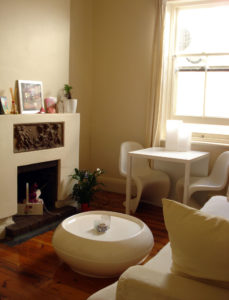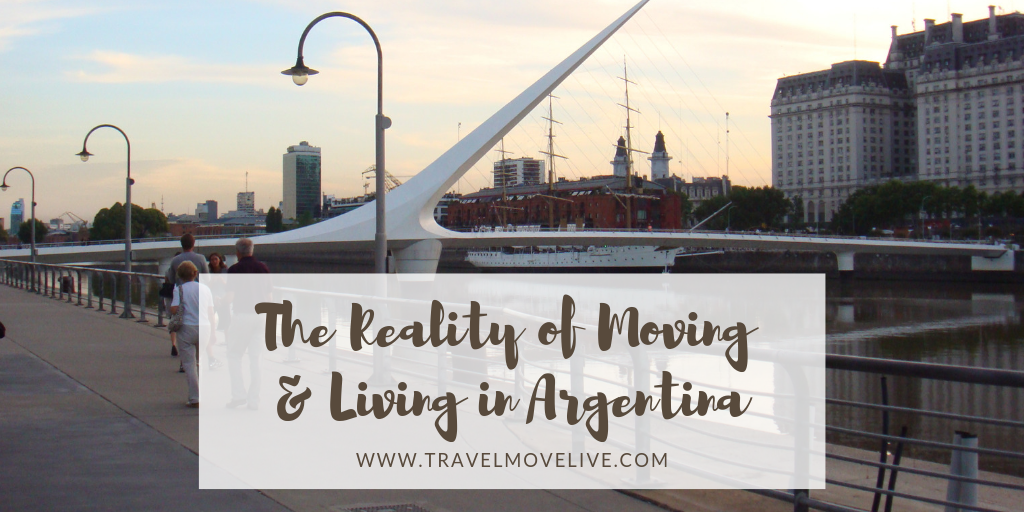To ship or not ship, your goods when moving abroad?
Deciding to move abroad is a big decision, and deciding to bring all your personal belonging with you is even bigger. This article will look at a few tips, tricks and insights that will help you in making and following through with the right decision, to ship or not ship when moving abroad.
The task itself can look and be epic, so it is not a decision we want to make lightly.
As someone who has moved abroad twelve times, and dragged all her worldly goods to five of those destinations. I’ve learnt a few things along the way. I started out, many moons ago moving and travelling abroad with just one suitcase.
But, when I ended up with a more stable job in Amsterdam 10 years later, I also bought a flat. Finally created a home, but it didn’t stop my wanderlust. I did start collecting memories of the places I visited, adding to my collection of worldly goods.
My belongings have no monetary value, but they do create an amalgamation of the many moments of my life and the places I’ve been. It’s this that travels around the world with me. Although I admit, that everything spends as much time in storage as does travelling and making a new place home.
Assuredly, there is nothing like unpacking everything again in a new country. Rediscovering it all, setting it up and like a snail in its shell, that instant feeling of home. Contentment in a box (or many boxes as the case may be).
If only we could wave a magic wand to get us and everything to our new destination. But we can’t, so here are some helpful tips and insights I’ve learnt along the way.
First, let’s be honest – not every move is going to be easy – and there are many lessons I wish I hadn’t learnt the hard way. But here we go, if you are considering shipping your personal effects, buckle up – you’re in for a ride.

Misconceptions about overseas shipping:
There is a common misconception that it is excessively expensive. While it can be true – buying a whole house full of new things is equally expensive and time-consuming. After a certain age, there will always be a selection of things that you are likely to want to keep, be it artwork, gifted items, books, memorabilia, unique furniture or photo albums.
When you ship a few boxes via FedEx or the post office they are calculated by weight, which is expensive and more likely to arrive damaged and may incur import taxes.
Costs will depend on which country you are moving to, what and how much you are moving. There are standard shipping costs per square metre, at MoveDB you can find an overview of standard routes. These costs are per container and don’t include door-to-door transport. It does give you a good estimate – and can help to set expectations.
Other sites such MoveHub site can also be helpful when it comes to country guides or when you’d like to request quotes from shipping companies.
Deciding when to ship or not ship abroad:
There are always questions you will need to ask yourself before bringing your goods with you. Before you decide, ask yourself:
- How long are you going for?
If you’re going for a short term or a year, it’s unlikely to be worth it. Especially if you take into account the time, effort and money it’ll cost you. - Is it temporary with the view of becoming permanent?
If you are not 100% sure yet or have never lived in the country, do a test run for 6 months before sending for your belongings. If you have a work contract and the company is footing the bill for a few years, great – go for it. But, if you ship everything out, you aren’t going to be happy to have to go through all the effort and costs to return it, if the new location doesn’t turn out as planned. - Where are you going?
Moving from one European country to another is relatively easy, but the minute you cross into challenging jurisdictions it can vary greatly. I moved all my things to Argentina – which I wouldn’t attempt today as they are stricter now on imports. At the time, my company’s legal team took care of the paperwork, issues and fees while customs held my goods ransom. These would have been a nightmare to deal with myself. - What would you like to bring?
If it’s household and personal items, it’s ‘normally’ not much of a problem. Bigger items such as cars, antiques, and motorcycles can be challenging. Pets will depend on the country, the USA is pretty easy, and Europe is fine if they have an up-to-date Pet passport. For Australia, plan ahead – they are very strict and require long quarantines, which are an inconvenience for your pets and a costly venture. Quick ways to get the costs down
Quick ways to get the costs down
Here are a few ways to make it more affordable. There will is always the possibility that unforeseen costs come up that you can’t avoid, so it’s always worth making sure that you have enough savings tucked away, just in case.
 Here are my top tips:
Here are my top tips:
- Get quotes from at least three different shipping companies. It’s always good to get a selection of prices before choosing which company suits you and your budget.
- Minimise what you will take before getting the quote, that way you can better estimate the costs.
- If you have less than a 20ft/40ft container, ask if there is an option to share a container.
- Understand what the quote covers. Most shipping companies will quote you for a full door-to-door move, including packing and unpacking. If you have more time than budget offer to pack and unpack it yourself. It saves manpower and can bring the price down.
You’ve decided to ship, now what?
- Sort out all your belongings:
Sort your things into 3 categories: to give away/ donate, throw away, or ship. Do this ahead, you’ll find you have more goods than you first believe.
It’s a good idea to use your weekends ahead of the move to tackle one room at a time. It makes it manageable and you are less likely to be overwhelmed at the last minute. - Research the country you are moving to and from
Every country is different, so it’s good to know what their stance is on imports, restrictions and timelines. A shipping company will take care of some of the paperwork and will give you advice. Yet, it’s good to be clear on what they will manage and what you’ll need to do yourself. Often there are local import certificates that you will need to apply for as a local resident.
Checking local expat forums can also be helpful, if any items such as cars are being held up at customs, you’ll find people complaining about it. It’s good to be knowledgeable and prepared. - Do a rough calculation of the amount you will be shipping.

Many shipping companies have an online calculator where you can add the boxes, and furniture that you have, and it will give you a rough estimate. - Contact shipping companies for a quote.
If a company has a local branch they often will come around and do an assessment of your goods and walk through the process with you before quoting. This is a good opportunity to ask questions about what the quote includes, what your options are, and gauge their customer service levels.- When choosing the right shipping company, cheaper isn’t always better as it might result in more paperwork or damaged goods. Choose a company that is professional with a price that suits you.
- When to ship
Once you’ve chosen your shipping company, you can decide whether you’ll ship it immediately, or after a set amount of time. Many shipping companies can store your goods at reasonable costs while you travel, or find a place to rent or buy. - Arrange the dates + paperwork
This will vary per person and per country. If you want your goods to arrive at the same time or soon after you arrive, and you already know your address, you can send them ahead of time. However, you might take time to find a place before settling. The shipment can take anywhere from 2 weeks to 4 months.- For example, if moving to the UK you’ll need a TOR (transfer of residence) number. To apply you’ll need to prove your residency via a proof of address, national security number and work details. Once approved you’ll receive a reference number from customs. With this, you can bring your personal belongings into the country, and it’s valid for 12 months from the day you moved to the UK.
Last points to keep in mind
Some moves, like the time I moved back to the Netherlands, were so easy despite the fact it was over 12’000 kilometres. Others, from Buenos Aires to Uruguay, which was around 100 km away were so epic I wasn’t sure I or anyone in my vicinity would survive it.
Lower your expectations and pack an extra dose of adaptability. Keep these additional tips in mind, they might not solve all the big issues, but it at least helps to prepare you before you go.
- Be organised
- Don’t put the important paperwork in storage. Bring it with you or ask someone to look after it and send it later. This includes mortgage papers, insurance forms, and bigger proof of purchase i.e. Car, motorbike. Passports/ birth certificates and police clearances can always be done online but it will take time before they get to you.
- Make sure you label your boxes carefully. So, when you are faced with the daunting task of unpacking, you can prioritise them.
- Create a number 1 items box, put in everything you think you will need before you unpack the rest, it might contain your tool kit, screws and sofa legs, remotes, teapot, etc.
- Timing is everything
- Know how long the shipping will take. Is there a time limit on importing personal goods when you immigrate? Make a simple timeline of the key milestones that need to be taken care of before you go, and when you arrive. This is especially important when travelling with pets, as vaccinations need to be done within a period of time. Knowing what paperwork needs to be done prior to and after the move. If it’s not done right, customs will hold your belongings, hostage, at the port – and storage at the harbour comes at a price.
- Pack some common-sense
- Sometimes it’s the only thing you need to travel and move with. We can resolve most everything by using common sense over getting mad and stressed.
- Break it all down into bite-sized chunks
- You’ll find when you see the mountain of boxes that you will want to unpack them all immediately. Which will result in a mini or mega-meltdown. If you have a spare room, put the boxes in there, that way you won’t have to face them when you wake up or go to bed. Break it down to a few boxes a day – while it will take longer, you’ll keep your sanity intact.
- Breathe
- There will be moments you will forget to breathe or just hold your breath hoping you’ll wake up and it will be all over. So, stop, have a cup of tea or vodka, and relax. The moment that you realise that all the boxes don’t have to be packed or unpacked within 24 hours, you’ll be fine.
It’s Epic, but it’s well worth it
Mental health professionals often list moving as one of the top 5 most stressful things you can do. And that’s for a local move, not an international one. But when the time comes to unpack everything and reconnect with your belongings, you’ll soon find yourself on distant shores, yet content and completely at home.
So, is it worth it? Totally, every mile and every cent of the way. Well, until next time, if you are anything like me, once you’re completely settled, you can start planning your next adventure. In the meantime, be sure to enjoy the one you are living.
p.s. As I write this post, I am camping out in the UK in my new flat, in my new town and waiting for my belongings to arrive from Australia – an epic journey. My belongings have now been in storage for over 18 months. And while I’ve loved my travels and adventures, I can’t wait to be reunited with everything.

Grateful for additional photos by:
Photo by VanveenJF on Unsplash
Photo by Max Williams on Unsplash
Jorg at Pixabay





 Being that my best option would be to find a company to sponsor me, the reality is that this is easier said than done. Despite my meetings, lunches and endless cups of coffee, I didn’t manage to find a sponsor in Argentina.
Being that my best option would be to find a company to sponsor me, the reality is that this is easier said than done. Despite my meetings, lunches and endless cups of coffee, I didn’t manage to find a sponsor in Argentina.



 This so far has been the most frustrating experience. So much so, that I’ve decided NOT to open a bank account.
This so far has been the most frustrating experience. So much so, that I’ve decided NOT to open a bank account.



